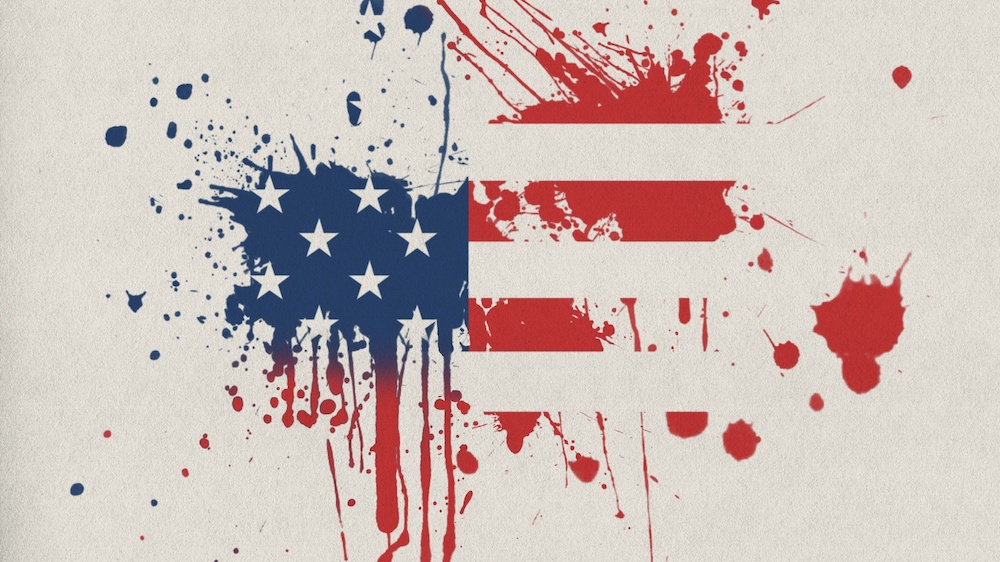If you’re interested in sharing your opinion on any cultural, political or personal topic, create an account here and check out our how-to post to learn more.
____
America has long been seen as a leader on the world stage. The depth of the COVID-19 crisis makes this claim seem ever more tenuous. Every U.S. presidential election is called “the most important in a generation.” As an American living abroad, this maxim has never felt more resonant.
It feels like we are at an inflection point. One path leads towards reclaiming a sense of self, a reclaiming of an identity. The other is almost too dark to contemplate. Watching the crisis unfold from the relative normalcy of London has given me a unique perspective. It has opened my eyes to the many ways in which the doctrine of American exceptionalism is actually a myth.
American exceptionalism is the idea that America is a nation set apart. Uniquely endowed with a set of special attributes that qualify it to lead the world. This idea is often expressed in familiar tropes like “leader of the free world” or Ronald Reagan’s “shining city on the hill.” Those sayings ring hollow now in light of the poor pandemic response. The confused messaging, the lack of testing and the baffling politicization of masks all point to a sickness in the body politic of the country.
Watching the pandemic response from afar has been surreal and dismaying. Recently, while reading an article, I came across the term “Illegal Americans,” a reference to the Americans who had been sneaking into Canada by boat to avoid the chaos at home. Moments like this have felt particularly dystopian and also challenged the myths we tell about ourselves.
You see, when you are an immigrant to the U.S. like me, you are hyper invested in the idea of the American dream. You need it to be true. It has to be true in order for so many aspects of your life to make sense. Why else would you uproot your life to move to another continent if not for the chance to attain this gilded dream.
This pandemic has shown that despite having the largest economy in the world and the most powerful military in the world, the U.S. is unable to show up for its citizens in the most basic ways. What good is having the outward markers of power and prestige when some pretty basic markers of development are not being met or are slipping?
It is this failure to show up that has the U.S. spending twice as much on healthcare as other developed countries, yet, has worse outcomes for life expectancy or maternal mortality. It is also why the U.S. has the largest economy in the world but is the only developed economy without universal healthcare. We have become the neighbors with the shiny expensive house, but no heat or electricity turned on.
There might be an impulse to solely blame the Trump administration for both the bungled pandemic response and this global decline. That would be shortsighted since many of the underlying causes of the failed response, while exacerbated by Trump, actually preceded him. The economic inequality, the lack of adequate healthcare, the disregard for worker protections have long existed.
If there is any silver lining, it might be that it feels like we are in a moment of reckoning, where we look around and wonder how we got here. It might also mean that perhaps Americans show greater empathy for citizens of other countries. We now share that experience of government inaction leading to profoundly negative impacts on day-to-day life. We are experiencing what it feels like when a government is not accountable to its citizens and not responsive to their needs.
Prior to now, there has been a reflexive impulse to view any questioning of American exceptionalism as unpatriotic. It’s why Michelle Obama was famously castigated when she gave a speech saying she was proud of the country for the first time in her adult life. The very idea that there might be times when America could make you less than proud was met with criticism.
However, the first step in making change is often admitting that there are areas where we fall short. It is through this introspection that we can confront ugly truths about ourselves and start the hard work of addressing those truths. If we define greatness by how superficially we project power on the world stage, and don’t prioritize the quality of life and wellbeing of our citizens, we risk becoming more than a laughing stock. We become the emperor with no clothes.
